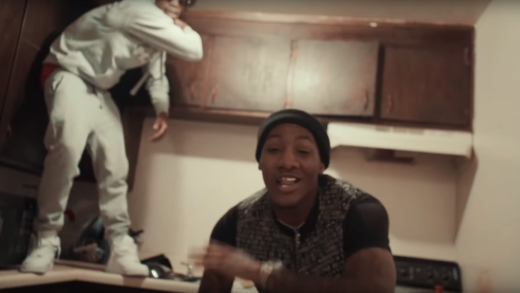“Got no sympathy for hoes / I’ll slap a bitch!” rages Slimmy B of SOB x RBE on the song “All Facts Not 1 Opinion” from the Vallejo rap group’s new album, Gangin II, miming a slapping motion as he says the words in the music video.
SOB x RBE aren’t the only young, rising rap artists making light of violence against women in recent releases. Twenty-two-year-old breakout Atlanta star Playboi Carti also brags, “Got me mad as shit, so I slapped that bitch” on “R.I.P.” from his album Die Lit, which peaked at No. 2 on Billboard’s rap albums chart in May.
The dialogue surrounding misogyny and abuse in rap culture—whether in lyrics or real life—has been a constant for decades. But it’s notably regressed since last fall, when the #MeToo movement reached a fever pitch. Yes, some of the main protagonists in that debate, namely 6ix9ine and XXXtentacion, continue to elicit a loud minority of detractors. But 6ix9ine has enjoyed chart success and a high-profile collaboration with Nicki Minaj despite his guilty plea to using a child in a sex tape. Meanwhile, many fans and artists have re-imagined the late XXXtentacion as a romantic fallen hero while glossing over the allegations of brutal domestic violence against him.
“I’ma be sympathetic to a kid who has clearly been through so much f-cked up shit that he inflicted this on someone else,” rapper J. Cole told Billboard in September. In the same interview, Cole expressed disappointment with his hero, Nas (Nas’ ex, Kelis, recently accused him of domestic violence). But even as some factions of the rap world grapple with talented artists who have appalling accusations against them, we seem to not have a problem with lyrics that reinforce the same behavior.


